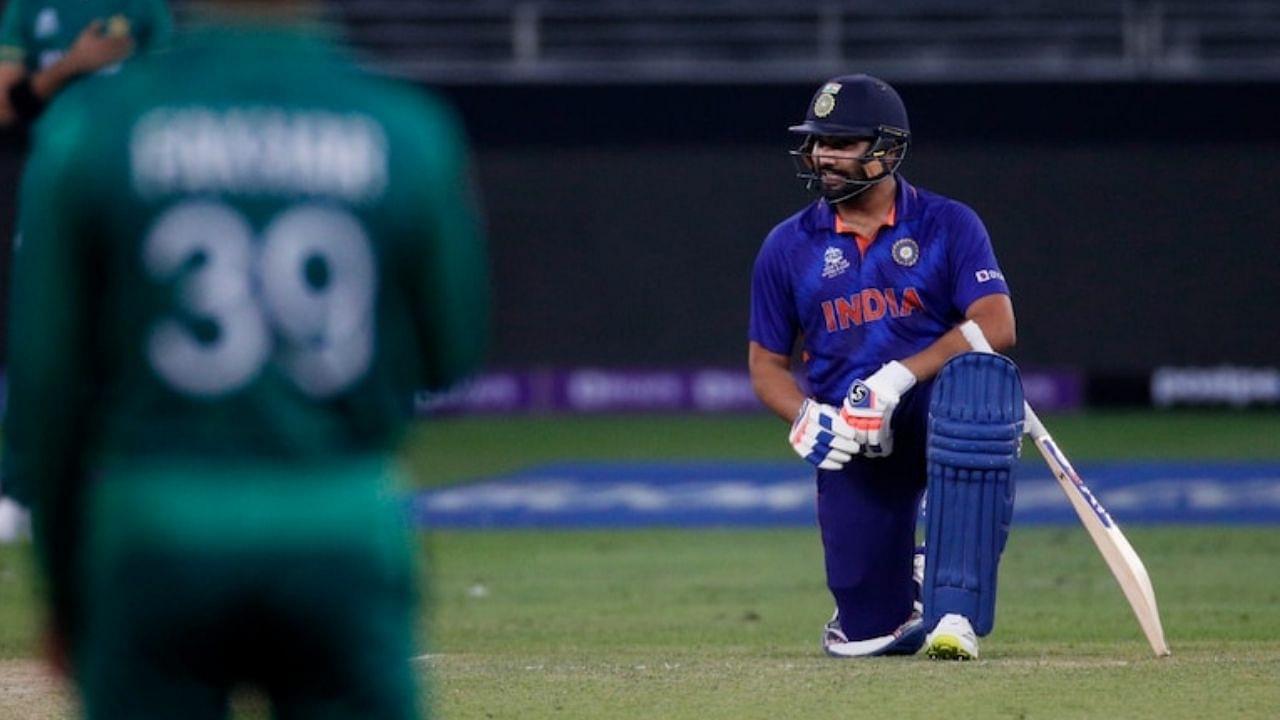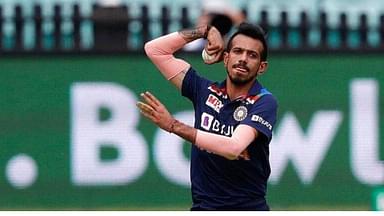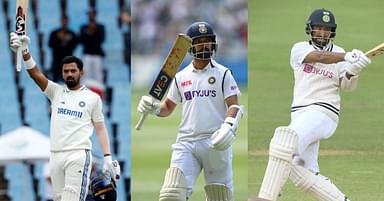Rohit Sharma not playing: The Indian vice-captain not opening the batting against New Zealand has surprised one and all.
Advertisement
During the 28th match of the ongoing ICC T20 World Cup 2021 between India and New Zealand in Dubai, New Zealand captain Kane Williamson has won the toss and chose to field in a virtual knockout match.
India captain Virat Kohli, who talked about wanting to field first as well, hasn’t had luck with respect to the coin toss working in his favour in the recent times. Given the successful record of teams bowling first at the Dubai International Cricket Stadium, Williamson opting to bat first wasn’t a surprised by any means.
While New Zealand have made a lone change to their Playing XI by including fast bowler Adam Milne for wicket-keeper batter Tim Seifert, India have had to make a couple of changes as batter Ishan Kishan and pacer Shardul Thakur have been included as like-for-like replacements for Suryakumar Yadav and Bhuvneshwar Kumar.
Why Rohit Sharma not playing today vs New Zealand?
India surprised one and all by sending Ishan Kishan and Lokesh Rahul to open the batting despite the presence of vice-captain Rohit Sharma in the Playing XI. Sharma, easily among the best white-ball opening batters of modern-day cricket, not opening the batting raised many questions and rightly so.
Perhaps done in anticipation of Kishan and Rahul providing India with a blistering start, it wasn’t to be as Kishan was dismissed by his Mumbai Indians teammate Trent Boult for 4 (8) after he opened his account in the third over.
No idea what to make of India’s batting order today, but hope it works for them! Can clearly sense the nerves! #INDvsNZ #T20WorldCup
— Raunak Kapoor (@RaunakRK) October 31, 2021
Sharma, who has played as an opening batter in most of his T20Is, is batting at No. 3 only for the third time. Readers must note that Sharma had last played at No. 3 in the last India-New Zealand T20I played in Mount Maunganui last year. Leading India in that match, Sharma had scored an impact-generating 60 (41) with the help of three fours and sixes each.







